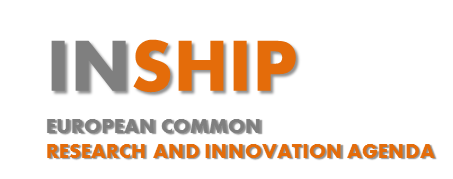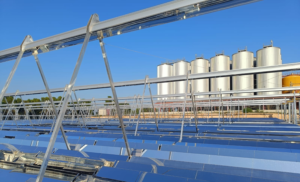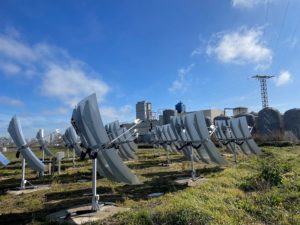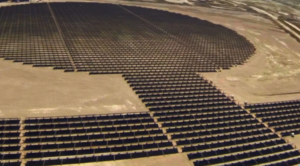

Europe: The Way to a Shared SHIP Research and Innovation Agenda
 Huge potential but little implementation so far – this is how one could describe the global situation of Solar Heat for Industrial Processes (SHIP). Although experts acknowledge that process heat shows the greatest potential of all solar heating and cooling applications, the share of SHIP systems in total installed solar thermal capacity has remained below 1 %. To tackle some of the barriers, such as missing standardisation, system costs and reliability, the INSHIP project funded by EU Horizon 2020 was launched in early 2017. It aims to devise a European Common Research and Innovation Agenda (ECRIA) on SHIP within the next four years. The project is coordinated by the German Fraunhofer Institute for Solar Energy Systems ISE and involves 28 European research institutions from twelve countries.
Huge potential but little implementation so far – this is how one could describe the global situation of Solar Heat for Industrial Processes (SHIP). Although experts acknowledge that process heat shows the greatest potential of all solar heating and cooling applications, the share of SHIP systems in total installed solar thermal capacity has remained below 1 %. To tackle some of the barriers, such as missing standardisation, system costs and reliability, the INSHIP project funded by EU Horizon 2020 was launched in early 2017. It aims to devise a European Common Research and Innovation Agenda (ECRIA) on SHIP within the next four years. The project is coordinated by the German Fraunhofer Institute for Solar Energy Systems ISE and involves 28 European research institutions from twelve countries. “There is more final energy consumption of heat in the industrial sector than there is electricity consumed worldwide. In peoples’ minds, however, energy is often confused with electricity,” emphasised Dr Pedro Horta, Coordinator of INSHIP and Head of the High Temperature Solar Thermal and Industrial Processes Group at Fraunhofer ISE. IEA’s statistics put heat consumption in the industrial sector at 85 exajoules in 2014, whereas the global electricity demand of all three – residential, services and industry – added up to only 71 exajoules. This means that there is a large need for coordinated R&D activities to speed up deployment. The around 500 SHIP installations operating worldwide have at least a combined 400,000 m² of collector and mirror area and produce around 180 GWh (= 0.001 EJ), so that solar thermal covers only 0.001 % of the total industrial heat demand of 85 exajoules.
The solar technologies available on the market already meet the heat requirements of a wide variety of industrial end users, although there are still technical questions to be addressed when considering these applications, e.g., how to incorporate those technologies into existing heat supply networks, what restrictions they will place on the space available, how reliable and durable the solutions will (have to) be and how to approach high-temperature use or hybridisation and waste heat integration. Based on ECRIA, SHIP research activities are said to be coordinated in line with the following objectives:
- Increase and enhance cooperation between EU research institutions
- Harmonise different national SHIP-related research and funding programmes to avoid overlaps and duplicates and identify gaps
- Accelerate knowledge transfer from and to Europe’s industry and become the leading organisation for promoting and coordinating international SHIP research collaborations
- Develop activities with the aim of advancing SHIP beyond the technologies available today
INSHIP has two work sections. The first follows research activities among consortium members for developing SHIP beyond state-of-the-art systems within four projects:
- To enhance the current state of low and medium temperature applications
- To further develop medium temperature technologies for specific industrial applications (e.g. available space, steam network integration)
- To develop process-embedded solar concentrating technologies for high-temperature applications to make use of SHIP in the EI (extractive industries)
- To explore additional synergies at industrial parks by using centralised heat networks connected to district heating and the electricity grid
The second INSHIP section aims at developing an Infrastructure Access Scheme. There will be two opportunities during the four-year period when new consortiums can submit R&D projects in collaboration with partners from INSHIP. These projects will then be classified based on their compliance with ECRIA’s objectives and the industrial companies’ degree of involvement. The Infrastructure Access Scheme is thought to support the evaluation of submitted R&D projects. The first round of applications will be accepted this August; the second is planned in April 2019. The projects chosen during that time will be financed by the INSHIP project.
Project website:


